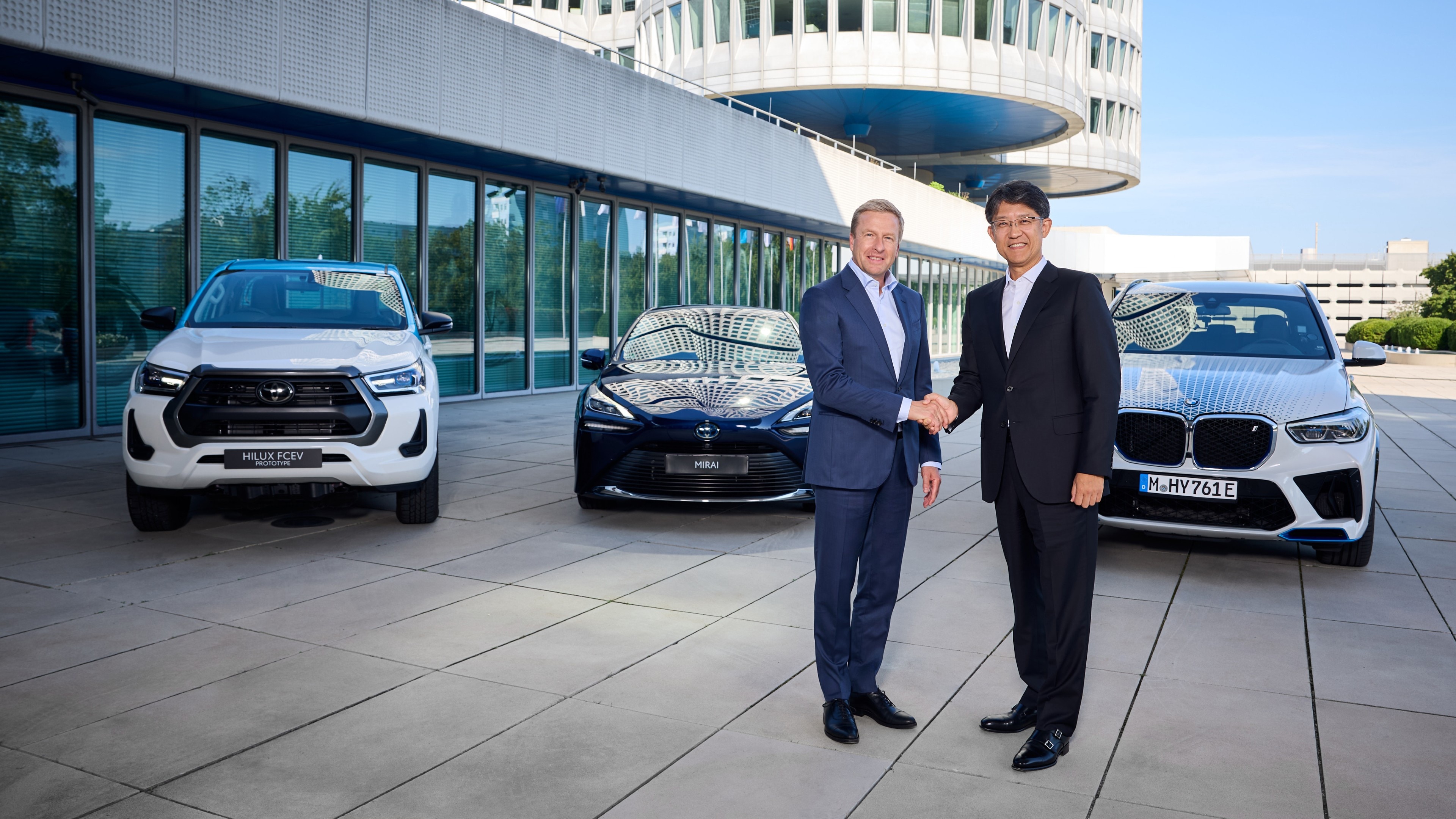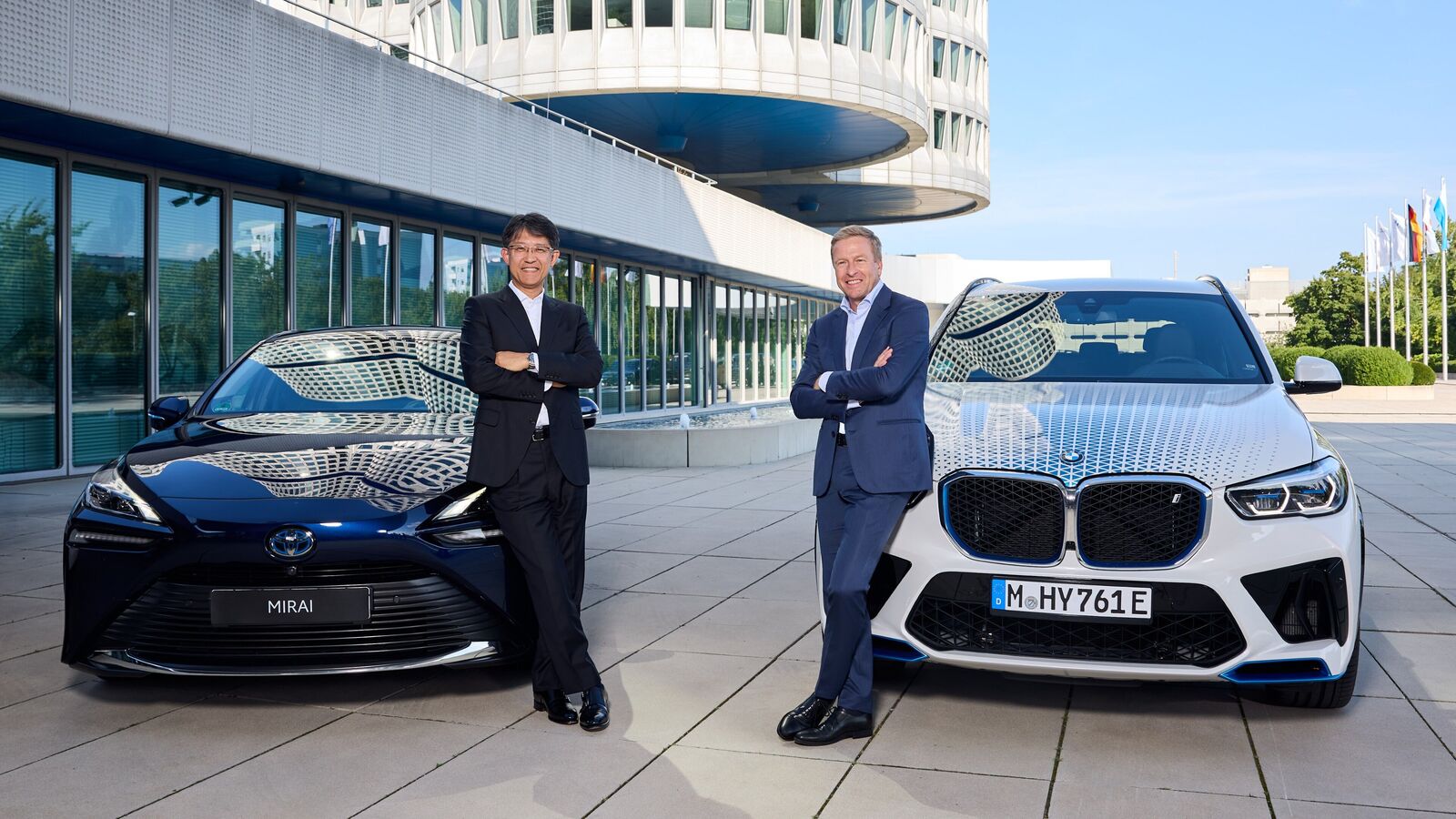- BMW has announced that its first hydrogen car will arrive in 2028, developed in collaboration with Toyota, and could be the next-generation iX5 SUV.
BMW and Toyota are now joining hands once again to co-develop future vehicles as the auto giants have announced taking their collaboration to the “next level” to offer Fuel Cell Electric Vehicles (FCEV) or hydrogen-powered cars. The two automakers previously joined forces for the Z4 and Supra performance offerings, and the latest collaboration will see the players learn and grow with each other. BMW has also announced that its first hydrogen car will arrive in 2028, which will be co-developed with Toyota.
Toyota has taken the lead in FCEV development and has also been selling the Mirai hydrogen car for the past decade. Based on its experiences over 10 years, the company has helped BMW accelerate hydrogen vehicle development and also shared resources and R&D costs.
Also Read: BMW 3 Series Gran Limousine M Sport Pro With Diesel Launched

The next BMW iX5 could be powered by hydrogen
BMW has revealed that its future hydrogen offering will be developed based on existing vehicle architecture. BMW and Toyota will co-develop the next-generation powertrain system that will be usable for passenger and commercial vehicle applications. BMW is testing the iX5 hydrogen pilot fleet worldwide and the next generation of the luxury SUV is expected to get an FCEV option in addition to the internal combustion engine.
BMW also said that its FCEV offering will stay true to the brand's DNA and will not be a rebranded Toyota. This makes us think that a very different Toyota version is also under development and will probably roll off the common assembly line, just like the Toyota Supra and BMW Z4. Notably, the fuel cells used in the BMW iX5 FCEV are supplied by Toyota.
The missing piece of the e-mobility puzzle
The move comes as reliance on EV technology and battery systems has not grown globally. BMW says that “hydrogen is the missing piece to complete the electric mobility puzzle, where battery-electric drive systems are not an optimal solution.”
The new BMWs will be based on the new Classe platform, the automaker's first dedicated EV architecture that already includes hydrogen technology. That being said, the existing CLAR platform could also be adapted to accommodate FCEV powertrains for initial offerings.
Take a look at the upcoming EV cars in India.
First Publication Date: 05 September 2024, 19:00 PM IST

